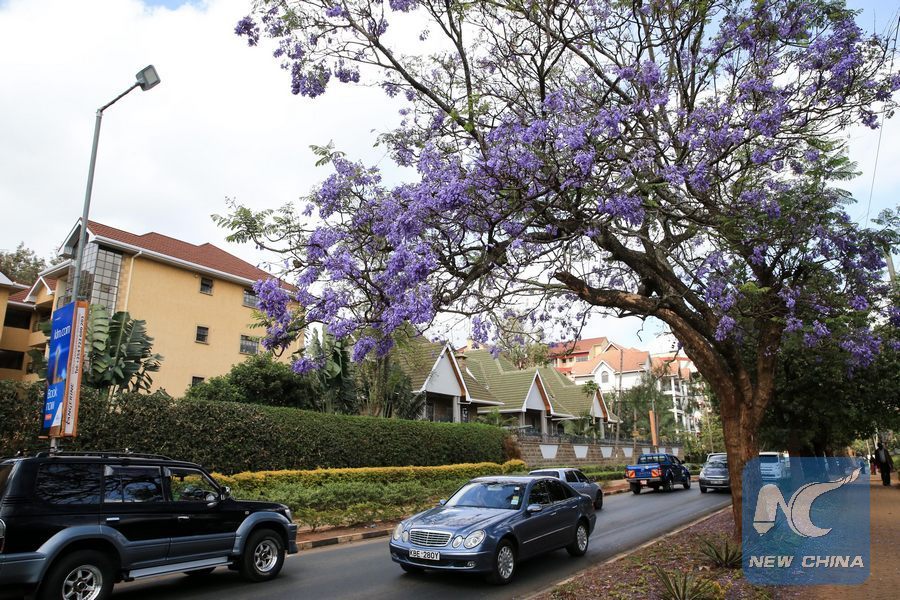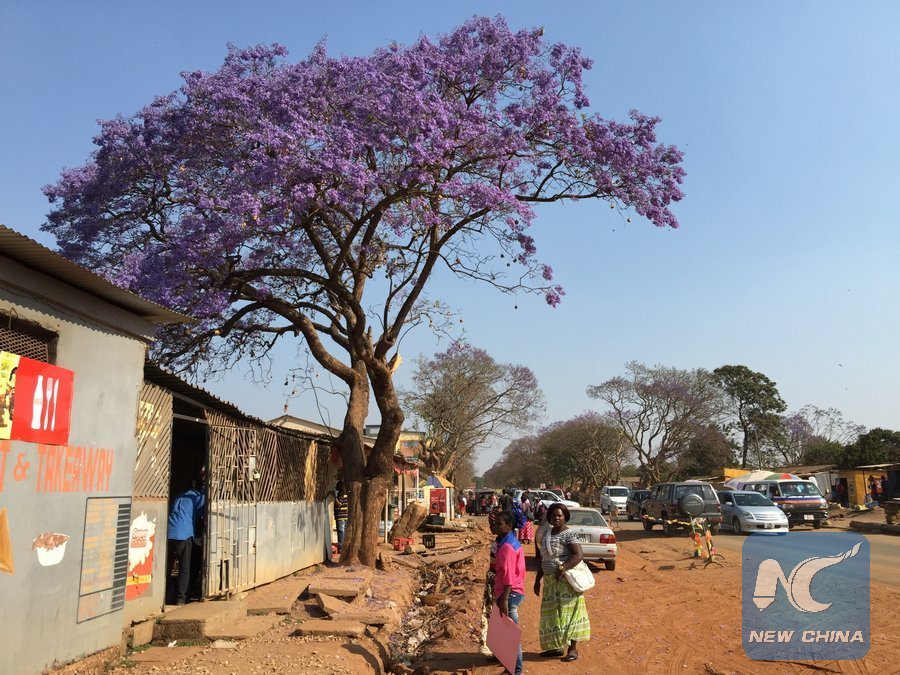
A blossoming jacaranda tree is seen in Nairobi, Kenya, Oct. 21, 2016. Jacaranda is a sub-tropical tree native in south-central America. It is widely planted in other parts of the world due to its beautiful and long-lasting flowers. (Xinhua/Pan Siwei)
DAR ES SALAAM, June 1 (Xinhua) -- The World Bank on Thursday released a new report aimed at greening Africa's cities which were facing massive environmental degradation.
"A fast urbanizing Africa is rapidly degrading the environmental assets of its cities," said the report entitled Greening Africa's Cities, which was released in Tanzania's commercial capital Dar es Salaam.
The report said protecting those assets can increase the productivity and livability of these cities, improve tourism opportunities, and enhance resilience to the impacts of extreme weather events.
The report pointed out that unique features of Africa's urbanization - such as substantially lower per capita incomes, high reliance on biomass fuels and extensive informal settlement with poor service levels were putting pressure on African cities' natural environment and eroding the value of environmental assets, including their green spaces, forests, and water resources.
The report mentioned other factors putting pressure on Africa's cities as the exposure of cities to environmental disasters such as floods.
"There is a significant risk that Africa's cities may become locked into a 'grow dirty now, clean up later' development path that may be irreversible, costly, inefficient, and welfare-reducing," said Roland White, Global Lead for City Management, Governance and Financing for the World Bank and lead author of the Greening Africa's Cities report.
"Once ecosystems such as wetlands in urban areas have become severely impacted, they are often effectively lost, as is the stream of services they can provide to support economic production and human wellbeing," added White.
"The degradation of natural assets and ecosystems within African cities carries tangible economic, fiscal, and social costs, including increasing costs of water production...and a loss of recreation and tourism value," said Sanjay Srivastava, Lead Environment Specialist at the World Bank, and contributor to the report.

Women stand below a Jacaranda tree in Lusaka, capital of Zambia, on Sept. 8, 2015. Lusaka, reputed as a garden city, is located in the plateau of Africa, which makes the city green in most of the year. The appearance of Jakaranda blooms decorates Luska with their tranquil blue color at the turning period between cold season and hot season in September annually. (Xinhua/Peng Lijun)
"Fortunately, there are important opportunities to change the trajectory of African cities towards a more harmonious relationship between their natural and built environments. However, focused action is needed to make this to happen," he added.
Bella Bird, World Bank Country Director for Tanzania, Malawi, Burundi, and Somalia, said: "Green urban development approaches are a win-win for the environment and the people of cities. Using this approach African cities can be more cost-effective, while conserving natural capital."
She said: "We can see in Tanzania, for example, that restoring forest areas and rehabilitating river systems could alleviate urban flooding problems, while also generating other economic and social benefits from reversing environmental degradation, and making cities more pleasant and productive places to live."
The World Bank Group is working with countries around the world to help build resilience to the growing economic, environmental, and social challenges they face today.

